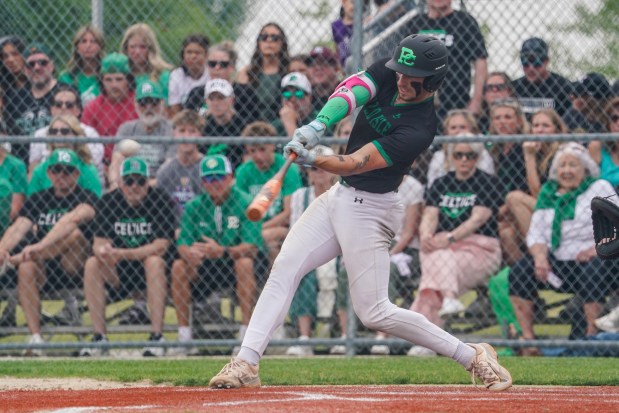Rep. Julie Olthoff, R-Crown Point, pulled a bill Monday that would create a food and beverage tax for Crown Point after further discussion with the chamber of commerce officials.
Olthoff said chamber of commerce officials raised questions about how much money the tax would generate and a specific plan for spending the funds. As setting the tax and what it can be spent on is negotiable, Olthoff said there wasn’t “a full answer on that.”
“I decided to pull it because it’s not ready,” Olthoff said. “Maybe it will go next year, maybe it won’t ever.”
Crown Point Mayor Peter Land issued a statement Monday in which he called the decision to withdraw the bill a collective one.
“Over the past two weeks, our team has received feedback from our residents and local business community, some in support of the tax and others not. Given the wide array of comments, we know it’s in the city’s best interest to not pursue the tax,” Land said.
In a statement issued Friday, Chamber President Ken Michaels said the chamber sent out a poll Jan. 7 to its business members and detailed information about the proposed tax. The business community responded to the poll with “overwhelming” feedback, Michaels said.
“The Crown Point Chamber of Commerce deeply values the hard work it takes to run a small business. We are devoted and committed to representing your best interest. Based on the data we collected and the clear message from our members, we stand with you in opposing the proposed 1% food and beverage tax,” Michaels said in the statement.
House Bill 1236 would’ve imposed a food and beverage tax at a rate not to exceed 1% of gross retail income from food and beverage purchases in the city. The money collected from the tax, an estimated $1.182 million in 2026, would’ve been used only for expansion and improvement of the Crown Point Sportsplex, Bulldog Park and Sauerman Woods Park; repairs and future development of the historic Lake County Courthouse and Lake County Jail; development and expansion of downtown parking capacity and amenities near the square and courthouse; and development and expansion of a multi-use trails.
Residents raised questions about using the funds toward parking and the historic Lake County Courthouse and Old Jail, which are non-city owned properties, Land said.
Parking has been a priority in Crown Point’s downtown square, which has drawn more customers as business has expanded in the area, Land said. While the Lake County Courthouse and Old Jail are not city-owned properties, they are an important part of the city’s history, Land said.
“We have a unique and great city. We have the absolute best business community anywhere in Northwest Indiana for what they provide for all of us and the region. Myself and the city will continue to partner with them on doing whatever we can to help in their continued success,” Land said.
The legislature can petition on behalf of a municipality to adopt a local ordinance to enact a food and beverage tax, but then the local government has to hold public hearings and approve the tax, Land said.
Currently, 39 communities in Indiana have adopted a food and beverage tax, Land said. In Northwest Indiana, Merrillville and Hammond have a food and beverage tax.
In Crown Point, the aim of establishing a food and beverage tax was to create an additional funding source for the local projects listed within the bill “and to assist in enhancing the level of tourism opportunities, both of which are the only identified uses of the funds and cannot be changed,” Land said.
“Each and every person has the absolute right to have a say in how they spend their money and where they spend it. Everyone works hard for the money they earn, so whether you are willing to spend 10 cents on a $10 purchase, 50 cents on a $50 purchase or $1 on a $100 prepared food and beverage purchase, it should, of course, be up to the individual,” Land said.




